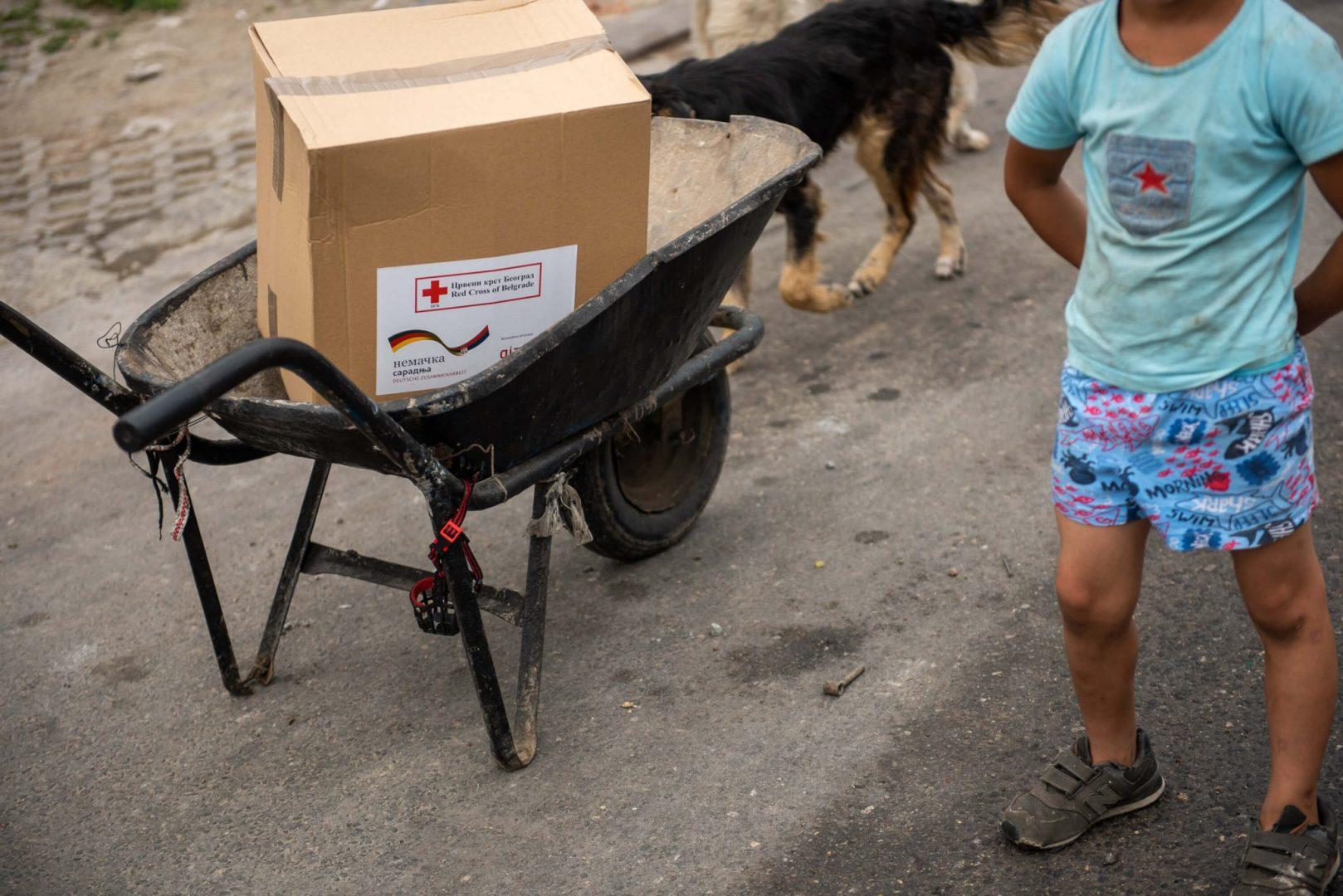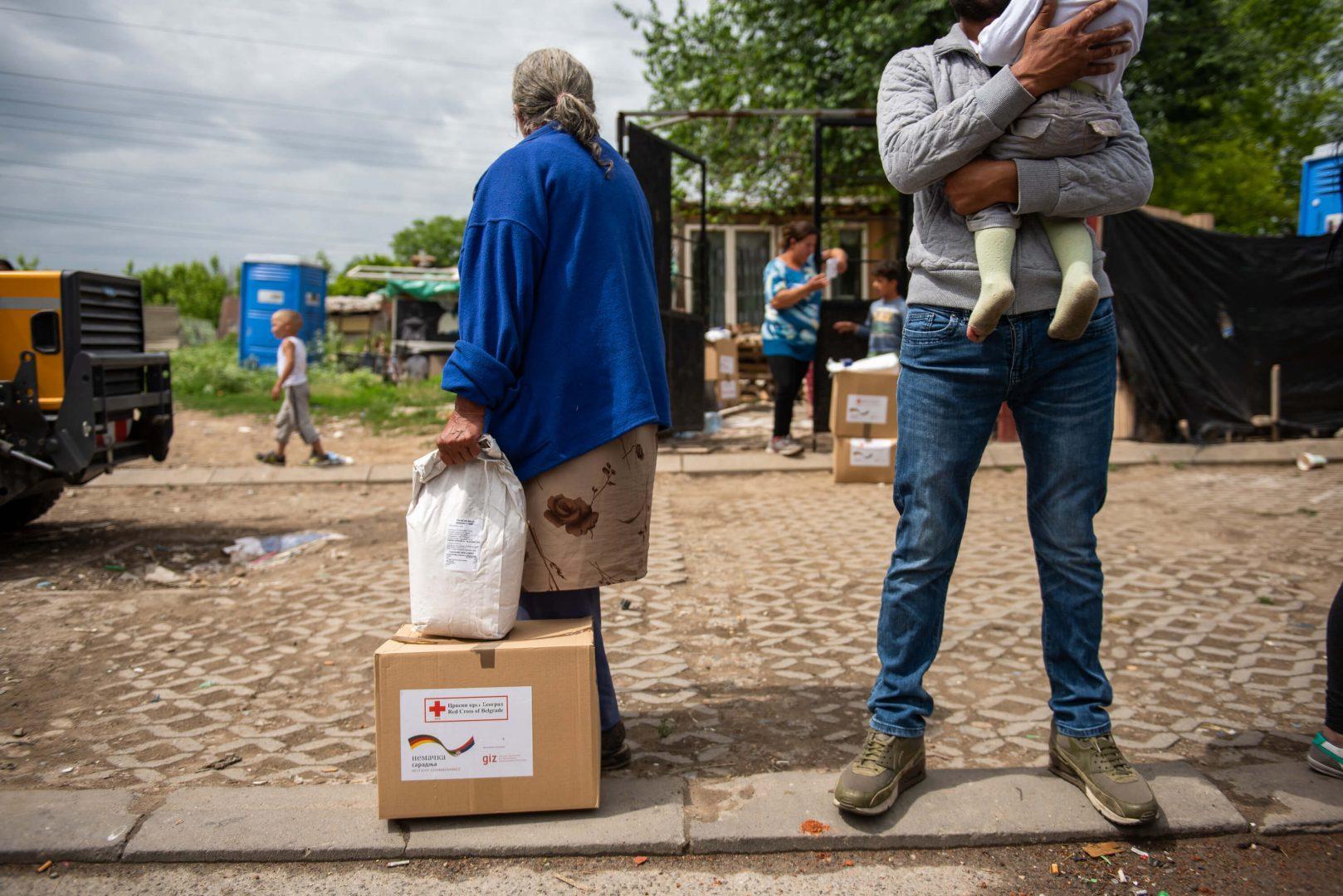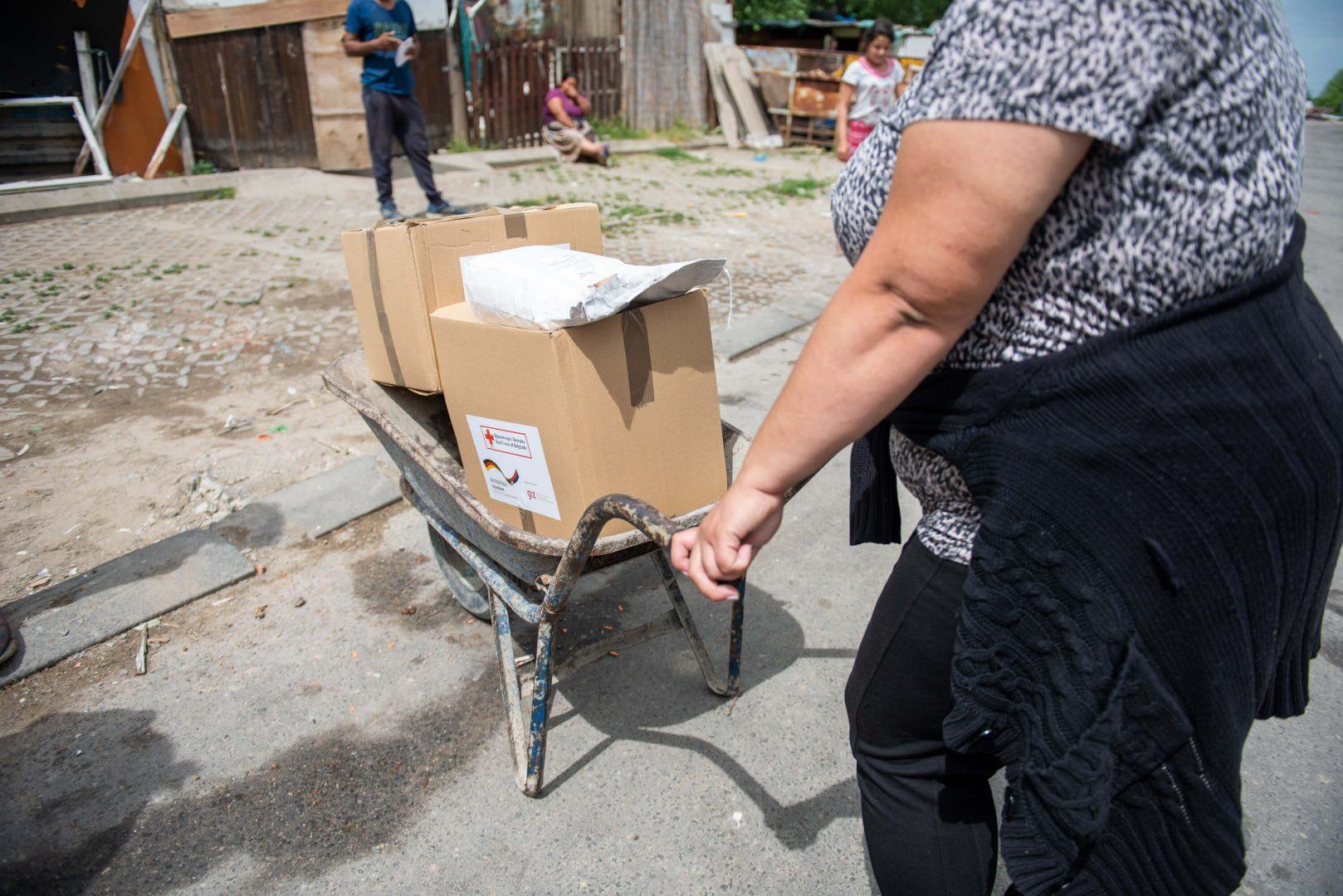With aim to help the socially vulnerable families to overcome the corona virus epidemic crisis, the German Development Cooperation project “Inclusion of Roma and Other Marginalised Groups in Serbia”, in partnership with the City of Belgrade and the Secretariat for Social Wellfare, and in cooperation with the Red Cross Belgrade, is donating food and hygiene products assistance packages to families in two substandard Roma settlements as well as to other socially disadvantaged families in Belgrade.
The assistance in food and hygienic products are going to be provided for 50 socially disadvantaged families living in two substandard Roma settlements – Okretnica 75 in New Belgrade and Lazari Roma settlement in Zvezdara, as well as additional 25 families from other socially vulnerable groups in Belgrade.
In this way the German Development Cooperation project “Inclusion of Roma and Other Marginalised Groups in Serbia”, implemented by GIZ, is going to support the City of Belgrade in improving the quality of services delivered to vulnerable groups and in monitoring the needs of vulnerable citizens in the state of the current crisis.
“Bearing in mind that access to food and basic hygiene is of particular importance in the situation caused by Covid 19 pandemic, our efforts, by delivering necessary and urgent assistance will contribute to mitigating the problems which socially disadvantaged families are facing. The intervention aims to help socially disadvantaged families in substandard Roma settlements, as well as others, to overcome a period that requires heightened care and protection. We also want to raise awareness of the importance of applying basic hygiene measures, which are the most effective way to prevent the spread of infection, therefore, we also plan measures to inform the Roma community about preventive measures, regulations and procedures related to Covid 19.. Our hopes are that the assistance packages will alleviate hardship in daily lives of those who due to poor living conditions face exceptional risks in this situation,” Robert Bu, Senior Project Coordinator for the “Inclusion of Roma and Other Marginalised Groups in Serbia” explained.
Given that providing social protection and adequate response to the needs of marginalised groups is a major challenge faced by local governments, the Red Cross Belgrade has undertaken the implementation of said activities and providing the assistance to the most disadvantaged Roma men and women living in substandard Roma settlements, as well as other socially disadvantaged families. Distribution of packages to socially vulnerable families in said settlements and beyond will go on for three months and involves 270 packages of food and 270 packages of hygienic products.
“This form of support is of utmost importance for socially disadvantaged people, especially in times of increased health risk caused by COVID 19 pandemic. Ensuring a more humane living conditions for persons living in substandard settlements should be the goal that the entire community must strive to”, Secretary of Red Cross Belgrade, Ivana Marisavljević Dašić, explained.
This donation also constitutes support to the Secretariat for Social Wellfare of the City of Belgrade in efficiently responding to the needs of their beneficiaries and ensuring better conditions and social protection for particularly vulnerable population groups who need assistance during the pandemic.
Nataša Stanisavljević from the Secretariat for Social Protection added that the donation in the form of assistance packages is of particular importance for all vulnerable families in Roma settlements that allows them to have appropriate care and supplies while the Covid-19 virus pandemic lasts..
Project “Inclusion of Roma and Other Marginalised Groups in Serbia” is being implemented in cooperation with the Cabinet of the Deputy Prime Minister of the Republic of Serbia, prof. Zorana Mihajlović PhD who is also the Chair of the Coordination Body for Monitoring the Implementation of the Strategy for Social Inclusion of Roma in the Republic of Serbia for the period 2016 – 2025.




